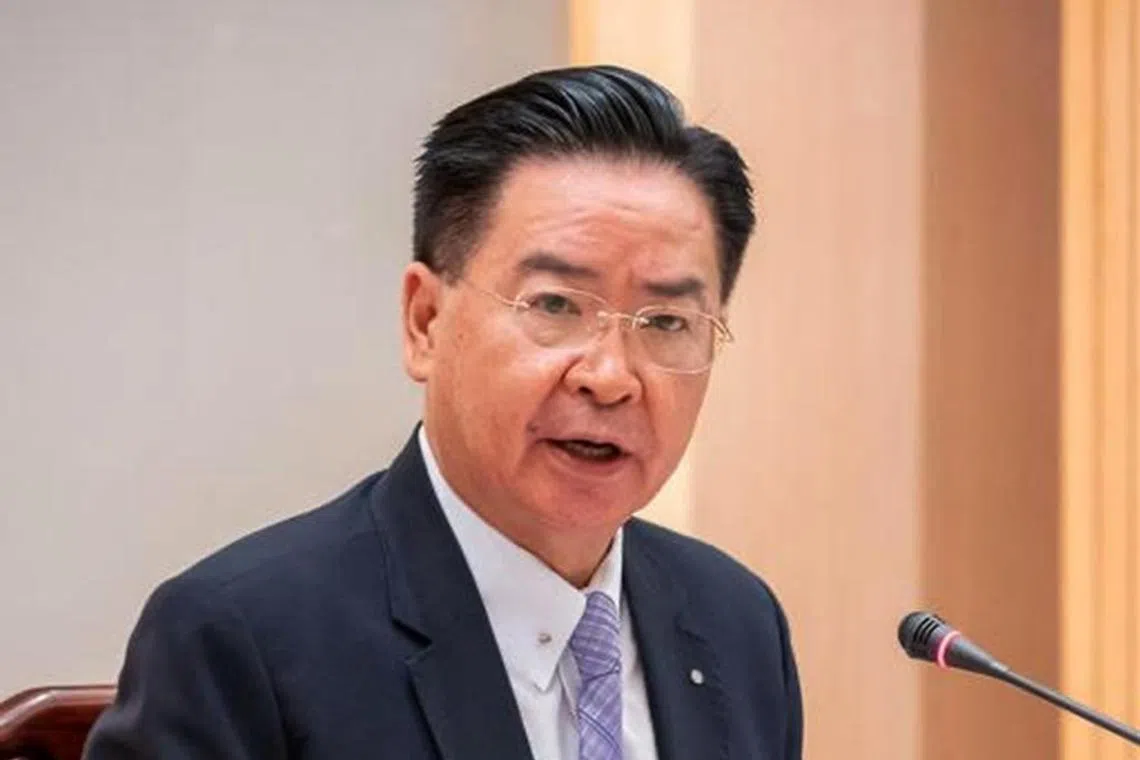Spying cases ‘unfortunate’ but morale is growing in Taiwan’s military, says Foreign Minister Joseph Wu
Sign up now: Get insights on Asia's fast-moving developments

Loyalty is no doubt important, said Dr Joseph Wu, noting that leaders and young people serving in the military are born and bred in Taiwan.
PHOTO: TAIWAN’S MINISTRY OF FOREIGN AFFAIRS
Follow topic:
TAIPEI - Spying cases are “unfortunate” but Taiwan’s young generation of soldiers are better trained and enjoy higher morale, said Taiwan Foreign Minister Joseph Wu.
He made the comments on Wednesday during a meeting with 20 visiting journalists from publications from across the world, including The Straits Times, at the Ministry of Foreign Affairs in Taipei.
ST had asked him how Taiwan seeks to defend itself, given cases of military officers convicted of spying.
There have also been investigations into suspected spying cases in recent months.
In August, a lieutenant-colonel and four retired military officers were among those probed for allegedly leaking military intelligence to Beijing.
In March, a retired rear-admiral and a former legislator
Loyalty is no doubt important, said Dr Wu, noting that leaders and young people serving in the military are born and bred in Taiwan.
He said the younger soldiers have received better training and know that they are more than capable of defending Taiwan.
“So the morale is getting higher than before because of this,” he added.
Concerns that war might break out between China and Taiwan have intensified in recent years, giving growing tensions between them.
China views self-governing Taiwan as its own territory and has not ruled out using military force to reunite with it.
Taiwan rejects such sovereignty claims.
Dr Wu said there is a growing consensus among analysts in the United States and Taiwan that war is neither inevitable nor imminent.
“From our perspective, we need to deter China from using force against Taiwan. Any kind of war between Taiwan and China is going to be disastrous, not just for Taiwan but also for many countries who have a stake in peace and stability over the Taiwan Strait,” he said.
On its part, Taiwan is adopting a responsible policy that seems to have worked so far to deprive China of a legitimate reason to launch an attack, said Dr Wu.
He added that Taiwan is also beefing up its military deterrence capabilities.
During the meeting of more than an hour, Dr Wu also gave his take on whether a poorer China will be friendlier.
In an economic slowdown, a major power tends to be more provocative, he said.
This is especially so for an authoritarian country experiencing domestic difficulties, Dr Wu said, adding that it may resort to diverting attention from domestic issues through external crisis to unite the country.
Under such circumstances, Taiwan might be the No.1 target of China, he said.
“So whether China is bigger and richer, or China is poorer, we simply have to stand guard and at the same time, we need to be very responsible and moderate in order to win international support and appreciation,” he said.


